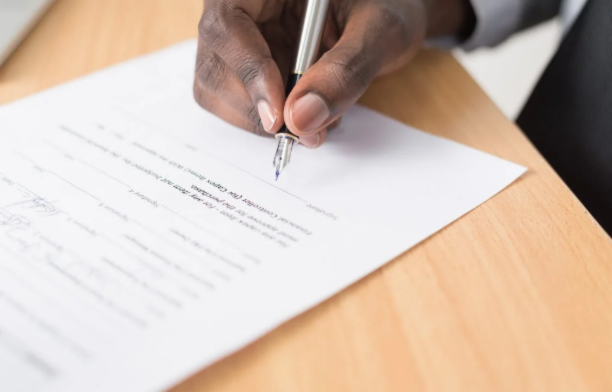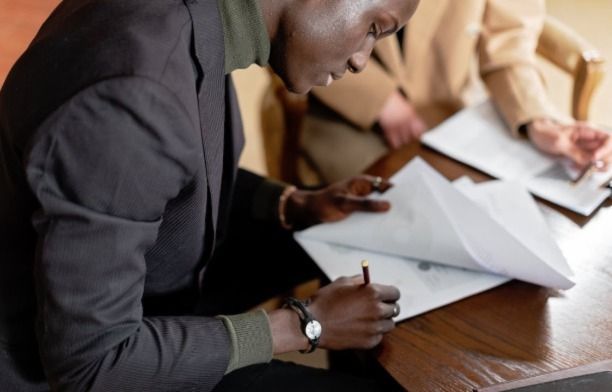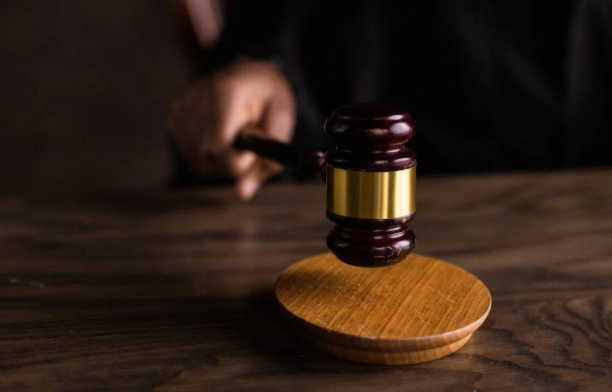What is a Will - Answers to Pass on to Your Children

A will is likely the most important legal document you’ll ever write. If you have money, property, or children, you need a will. You’re not going to live forever.
A will is your post-demise plan of action that spells out directly and precisely how you want your assets to be distributed to your family or other heirs. Most importantly, a will allows you to name the guardian for your minor children or dependents.
This blog post takes a closer look at what a will is, why it's important, and what types of wills are available. Read through and learn to make informed decisions in preparing your estate planning documents.
If you intend to prepare your own will and are in need of legal or tax advice, reach out to our expert today and take advantage of his rich legal and financial expertise.
Key Takeaways
- A will is a legal document that outlines how a person's assets will be distributed after their death. It is a crucial part of estate planning which allows individuals to have control over their assets and ensure that their wishes are carried out.
- A will can minimize tax hits and the time spent dealing with judges and lawyers.
- Wills are not just about money, they can also be used to name the legal guardian(s) of your children and dependents, 17 years old or younger.
Disclaimer
The contents of this article are for educational purposes only. They are not intended to be a source of professional financial advice. You will find experts on financial planning, financial management, and real estate here. More on disclaimers here.
What Exactly is Will?

A will is a legal document that outlines how a person's assets will be distributed after their death. It is a crucial part of estate planning which allows individuals to have control over their assets and ensure that their wishes are carried out.
What are the 3 Kinds of Will?
There are several types of wills that can be used to manage and distribute a person's assets after their death. Here are 3 main common types of wills categorized according to purpose:
Simple Will
A basic will that outlines how a person's assets will be distributed after their death.
Living Will
A legal document that outlines a person's wishes for medical treatment and end-of-life care if they become incapacitated and cannot make decisions for themselves.
Joint Will & Mutual Will
Joint wills are created and executed by two people, usually a married couple, that outlines how their assets will be distributed after both of their deaths.
This is similar to Mutual Wills. A mutual will is created by two or more people and sets out how their assets will be distributed after all of their deaths.
Types of Will (according to medium and conditions under which they were created)
Wills can also be categorized according to the conditions under which they were created. These include:
Holographic Will
A will that is handwritten and signed by the testator (the person making the will) but not witnessed.
Nuncupative Will
Also known as an oral or deathbed will, this type of will is made orally by a person who is on their deathbed or in a similar situation where they are unable to create a written will.
Pour-Over Will
A will that is used in conjunction with a trust and directs any assets that were not transferred to the trust during the testator's lifetime to be transferred to the trust upon their death.
It's important to consult with an attorney or finance expert to determine which type of will is appropriate for your specific situation.
Testamentary Trust Will
A testamentary trust will is a type of will that includes a trust that is established after the testator's (the person making the will) death. This type of will allows the testator to direct how their assets will be distributed and managed after their death.
How Does a Will Work?

A will is a fundamental component of estate planning — or death planning, as some morbid types call it. A will is, in fact, the end product of the estate-planning process. Sure, actively planning for one’s death sucks.
But estate planning is about putting on your grown-up pants and facing up to your own mortality; and then to come up with an easy-to-read blueprint to ensure your stuff goes exactly as you wish to your loved ones, favorite charities, or even the guy who pumped your gas for years.
To be clear, “estate” refers to money and property only, such as your house, bank accounts, stocks and bonds, and life insurance policies, as well as cars, jewelry, and artwork. Really anything — like your online account numbers and passwords. You’ll want your social-media accounts shuttered after you die. Or do you?
Make this work as painless as possible for the people tasked with legally settling your estate. A will can minimize tax hits and the time spent dealing with judges and lawyers, among other hassles.
Who Takes Charge of the Will After Death?

That person is called the executor. He or she will manage your estate and thus execute your stated instructions until completion. The executor can be your spouse, adult child, or another relative. It can even be your best friend.
A lot of people who have large estates name their accountants or attorneys as executors, but there’s no law preventing you from naming both your wife and attorney as joint executors of your will.
Legal experts recommend that will writers clearly spell out the executor’s required duties, such as giving that person the power to pay your bills, taxes, and debts. When choosing your executor, think long and hard.
An executor needs to have financial smarts and a certain Zen-like personality that can handle reams of documents and tons of frustration.
Again, you want to minimize the hassles and bullshit for both the executor and your heirs, who are referred to in the will as beneficiaries. You want to avoid any delays in transferring your estate.
Why Wills Aren’t Just About Money

As noted earlier, you can use a will to name the legal guardian(s) of your children and dependents, 17 years old or younger. A guardian can be your spouse, another family member, or a trusted friend. It’s a good idea to have a second-choice guardian as a backup.
You can name one primary guardian for the children and another guardian — or what they call a conservator — whose job is to manage their inheritances of property or money until they’re given full control of those assets.
This dual guardian-conservator system may seem a bit cruel, but it serves a purpose. For instance, perhaps your brother and his sweet wife make perfect guardians, but they’re so lousy with finances you can’t trust them to manage your money.
What Happens If I Don't Have a Will?
Have you ever faced up with this question: What Happens If You Die Without a Will? A will is about control and saving your family time, money, and hassles as the executor carries out your final wishes to settle your estate. Without a valid will, your estate is at the mercy of the probate court system, which is the legal process of transferring the property of a deceased person to rightful heirs. The process varies from state, but a will ensures a quicker and cheaper settlement of your estate.
If you pass away without a will, you become what is called intestate, and your estate will be distributed according to your state’s “intestacy” laws. That means the probate court will attempt to pass your property to your closest relatives, starting with your spouse and children and going down the family line to distant relatives.
If you have no living relatives by blood or marriage, the state simply will take your property.
To get the estate-settlement process rolling, the probate court judge will appoint an administrator. This is typically an impersonal stranger who will settle your estate based on the strict dictates of the law and not your final wishes that you failed to codify in a will.
What Happens to the Kids?
This may be a bit extreme, but let’s say no one comes forward to request guardianship of your children. Sadly, the court will place the kids in state custody, and they’ll go into the foster-care system. See why a will is so crucial for parents and their kids?
Also, this is a good time to remind you about picking the proper guardian. If you choose a guardian who’s a citizen of and lives in another country, it’s possible the probate court in your home state could refuse to appoint this person as their guardian. Then the kids would become wards of the state until the sorry mess is sorted out, which could take months.
Ways to Avoid Probate Court

For many executors, dealing with probate is akin to root canal surgery. Every penny is documented, and every document verified. Probate is public, so your neighbor will learn that you were never a billionaire. The whole idea is to make the entire estate-settlement process as quick and painless as possible.
You also have to be mindful of cost. Going through the probate process involves costs and fees that could suck up 10 percent of your assets. That said, you don’t have to list all your assets in your will.
Retirement plans like 401(k)s or IRAs, taxable brokerage accounts, and insurance-policy payouts enable direct transfer of monies without involving a will as long as you name beneficiaries of those assets.
Not having these assets subject to probate may save money on court and attorney fees. That said, real estate and personal property don’t allow for the naming of beneficiaries outside a will. However, there’s a way to avoid probate completely.
Many wealthy Americans don’t use wills to transfer their estates. Instead, they use trusts. But you don’t have to be rich — anyone can start a trust.
There are a few types from which to choose, and most are designed to minimize estate taxes (rich people really hate paying taxes). A trust basically allows a third party, or trustee, to hold your money on behalf of your beneficiaries until they reach a certain age.
How To Prepare and Validate Your Will

Although the process of preparing and validating a will requires care, it is basically a straightforward process.
How to Draft a Will
A will is easy to prepare. You don’t need a lawyer, although it is advisable to work with an estate-planning attorney if you have a complex estate or marital situation.
If you’re married, experts say both spouses should have separate wills (both of which should be nearly identical). Problems could pop up if you end up as the surviving spouse — like that truck your late husband bought and kept at his buddy’s house but never added to your joint will. Separate wills also come in handy if your wife was previously married or has kids who live with her ex in Mexico.
How to Validate a Will
Once your will is drafted and it’s time to sign, you’ll need to get someone to act as a witness. Anyone can do it, and most states require two or more witnesses. Not all states require that you have a will notarized, though.
Make sure you have signed copies of the original and keep them with your attorney or a trusted friend. Store the original in a safe at your house — not in a bank safe deposit box. Then update your will to reflect any major life changes.
Also keep in mind that your will can be contested in probate — typically by an ex-spouse or estranged adult child. All the more reason to write your will clearly and precisely. Avoid any hint of ambiguity.
Final Thoughts: Your Will Is Your Will
Creating a valid will is a simple process. Planning a will is not. It’s an emotional process. Who the hell wants to think about dying and which sister or brother will raise the kids? Or who will get your porn collection or doomsday bunker in Idaho? But that’s life (or adulting for you younger readers).
Get it all down on paper, validate it, and give yourself a little piece of mind, especially if you have kids. Also, get another to work with you, preferably a certified financial planner, to support and guide you through this emotionally-tensed process.
Bay Street Capital Holdings

Bay Street Capital Holdings is a Black-owned, independent investment advisory, wealth management, and financial planning firm that manages portfolios with the goal of maintaining and increasing total assets and income with a high priority on managing total risk and volatility.
The founder, William Huston, is recognized as Investopedia’s Top 100 Financial Advisors for 2022. Bay Street was founded to advocate for diverse and emerging fund managers and entrepreneurs and was selected as a finalist out of over 900 firms across the US in the category of Asset Manager for Corporate Social Responsibility (CSR).
Sources
https://www.legalzoom.com/articles/what-are-the-4-types-of-wills-and-what-should-they-include
https://www.rocketmortgage.com/learn/avoid-probate
https://www.justia.com/estate-planning/wills/docs/how-do-i-prepare-a-valid-will/
https://www.lawhelp.org/dc/resource/frequently-asked-questions-about-wills





















